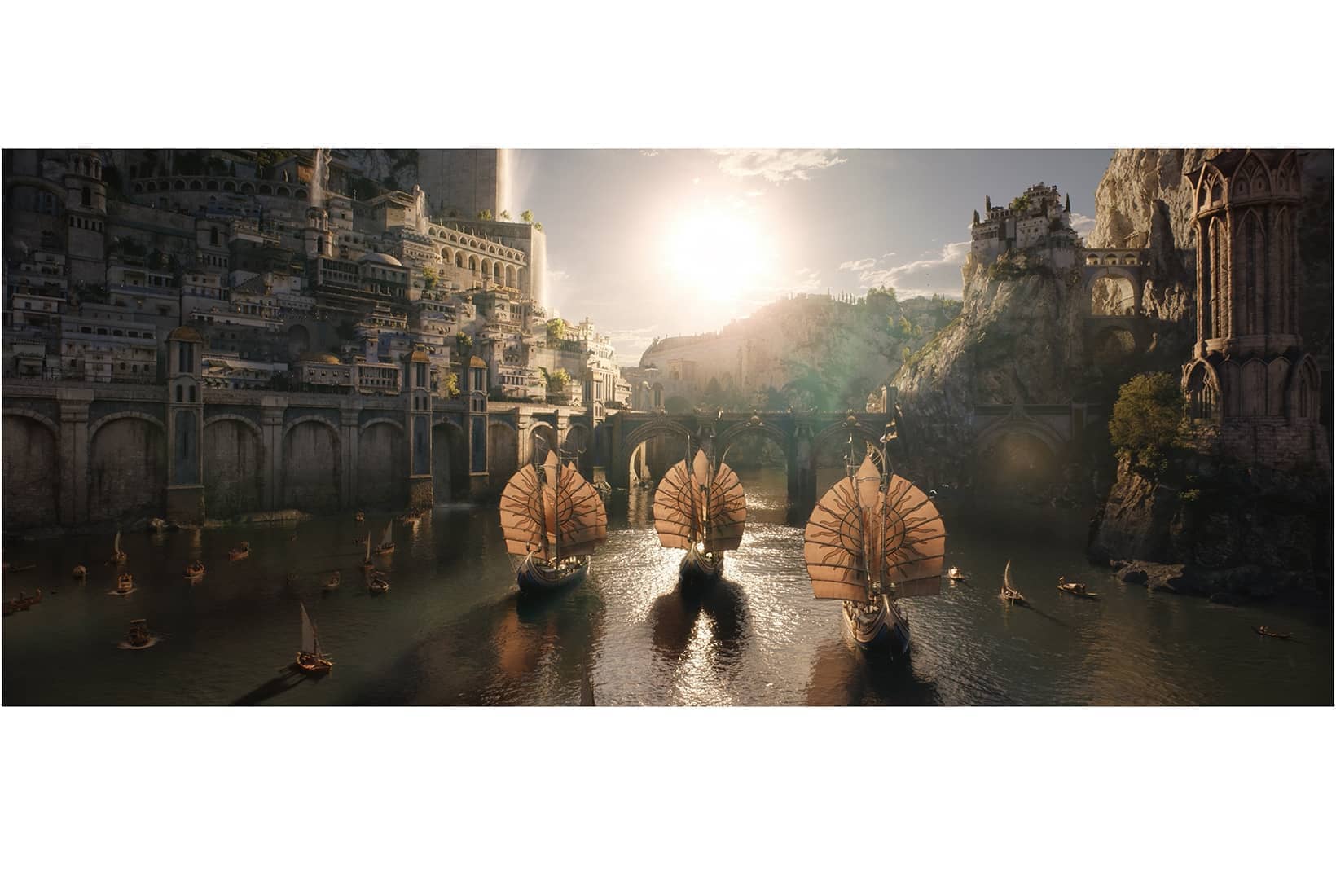Amazon’s much-heralded Tolkien prequel The Lord of the Rings: The Rings of Power began by answering a question that has puzzled humankind – and possibly elves – these many millennia. Why is it that a ship floats and a stone doesn’t? The reason apparently is because ‘a stone sees only downward’, whereas a ship has ‘her gaze fixed upon the light that guides her’.
And this, I’m afraid, set the tone for much of the dialogue that followed in the two episodes released so far – as, to their credit, the characters managed to exchange an endless series of ponderous aphorisms without giggling. So it was that we learned how ‘the wine is sweetest for those in whose bitter trials it has fermented’; how ‘the same wind that seeks to blow out a fire may also cause it to spread’; and, more pithily, how ‘there can be no trust between hammer and rock’.
On the plus side, any pedants watching will have been delighted by the scrupulous observance of old-school linguistic rules. There was, for example, no sloppy use of objective pronouns (‘No one yearns for home more than I’), a deep if sometimes effortful commitment to not ending a sentence with a preposition and even the widespread avoidance of anything so vulgar as an abbreviating apostrophe in phrases like ‘I cannot’. Unfortunately, however, that only added to the sense of a show creaking under the weight of its own solemnity.
The characters managed to exchange an endless series of ponderous aphorisms without giggling
As you probably know by now, The Rings of Power is the most expensive TV series ever made. Although if you didn’t, it wouldn’t have been hard to guess, given how assiduously the programme kept drawing attention to the fact, underlining every admittedly spectacular cityscape and aerial shot with wildly swelling choral music.








Comments
Join the debate for just £1 a month
Be part of the conversation with other Spectator readers by getting your first three months for £3.
UNLOCK ACCESS Just £1 a monthAlready a subscriber? Log in